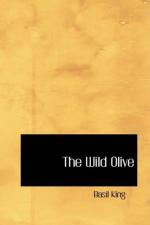And he could live with relative economy. Monsieur Durand could explain that too. In fact, he might get board and lodging in the same house as himself, with Mrs. Wilson who conducted a modest home for “gentlemen only.” Mrs. Wilson was a Protestant—what they called a Methodist, he believed—but her house was clean, with a few flowers in the patio, very different from the frightful conventillos in which the poor were obliged to herd. If Mr. Strange thought it odd that he, Monsieur Durand, should be living beneath a Protestant roof—well, there were reasons which were difficult to explain.
Later on, perhaps, Mr. Strange might take a season on some great sheep estancia out in the Camp, where there were thousands of herds that were thousands strong. Monsieur Durand could help him in that too. He could introduce him to wealthy proprietors whose sons he had taught. It would be a hard life, but it need not be for long. He would live in a mud hut, dirty, isolated, with no companionship but that of the Italian laborers and their womenkind. But the outdoor existence would do him good; the air over the pampas was like wine; and the food would not be as bad as he might expect. There would be an abundance of excellent meat, chiefly mutton, it was true, which when cooked A la guacho—carne concuero, they called it in the Camp—roasted in the skin so as to keep all the juices in the meat—! A gesture of the hands, accompanied by a succulent inspiration between the teeth, gave Strange to understand that there was one mitigation at least to life on an Argentine estancia.
To come into actual contact with the sheep, to know Oxfords, Cheviots, Leicesters, and Black-faced Downs, to assist at the feedings and washings and doctorings and shearings, to follow the crossings and recrossings and crossings again, that bred new varieties as if they were roses, to trace the processes by which the Argentine pampas supply novel resources to the European manufacturer, and the European manufacturer turns out the smart young man of London or New York, with his air of wearing “the very latest”—all this would not only give Strange a pleasing sense of being at the root of things, but form a sort of apprenticeship to his trade.
* * * * *
The men had not yet finished their hour of siesta, but Strange himself was at work. Ten minutes were sufficient for his own snack, and he never needed rest. Moreover, he was still too new to his position to do other than glory in the fact that he was a free being, doing a man’s work, and earning a man’s wage. Out in the Camp he had been too desolate to feel that, but here in Buenos Aires, at the very moment when the great city was waking to the knowledge of her queenship in the southern world—when the commercial hordes of the north were sweeping down in thousands of ships across the equator to outdo each other in her markets, it was an inspiring thing




